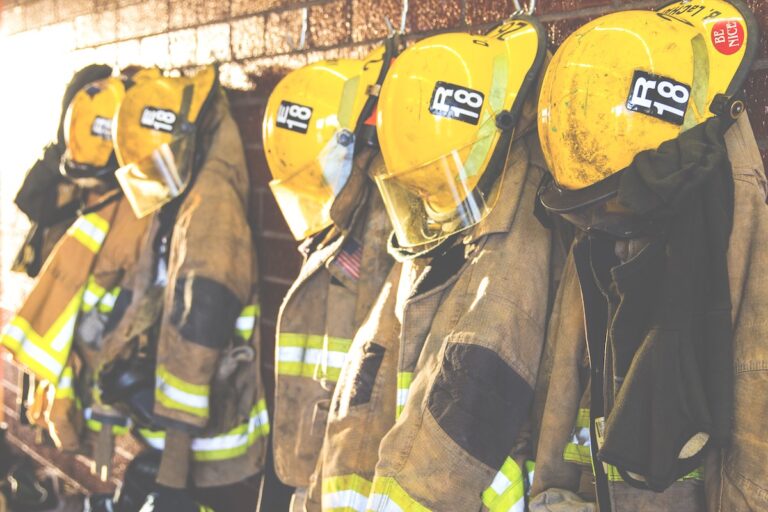What is Pharmacy Technician Salary? How to Become a Pharmacy Technician
What is a lucrative career in healthcare?
Let’s talk about a healthcare career that lets you have a direct impact on others’ lives—and interface with people on a regular basis—but keeps you away from the more, well, gory aspects of medicine.
Sound intriguing? We think so, too. Today, we’re talking about how to become a pharmacy technician—and what you can expect salary-wise from this profession.
Similar to medical assistants, pharmacy technicians are a third party of sorts. They work between pharmacists and patients or customers. As a pharmacy tech, you might work in a more retail environment like a mainstream pharmacy or a grocery store.
You might also work in a medical facility and interact less with “everyday” customers. No matter where you work, it’s likely that you’ll handle a range of tasks, like working cash registers, advising patients, and counting out pills for customers’ prescriptions.
Pharmacy Technician Job Description
The National Pharmacy Technician Association (NPTA) notes that pharmacy technician roles typically include:
- Gathering medical histories and documentation for patients
- Manage billing and insurance claims
- Counting and measuring medication
- Interfacing with customers and helping with questions, purchases, etc.
It goes without saying that this job requires extreme attention to detail. You’re counting pills, ensuring the right people get the right medicine, and managing other important tasks. If you’re detail-oriented and enjoy a mix of people-focused and solitary work, this might be the medical path for you.
Let’s dig into the ins and outs of what it takes to become a pharmacy technician—and what a pharmacy technician salary looks like.
How to Become a Pharmacy Technician
Another similarity we found between medical assistants and pharmacy techs is that these roles require significantly less schooling than most other healthcare professions. While you will be required to get an education and most likely a certification, you can likely finish this process in about two years, depending on the program(s) you decide on.
One thing to note about becoming a pharmacy technician: you’ll want to check your state’s specific licensing and certification requirements. Some states require certifications to practice in this field—you’ll want to ensure you “cross your t’s” so that you can find a job in your area.
1. Get the Education
First things first: you’ll have to get the education needed to become a pharmacy tech. In addition to a high school diploma or GED, there are some options in terms of education requirements.
You’ll find various community colleges have pharmacy tech programs that take as little as one year (though sometimes less) to complete. Alternatively, you can earn an associate’s degree that typically takes two years or so, depending on how you space your classes, labs, and clinical hours. Some employers like to see this associate’s degree on your resume—it may help you stand out when applying for pharmacy technician jobs.
Important Note: Before you enroll in any pharmacy tech program, you’ll want to ensure that it’s accredited.
You may have to do some digging online. We recommend calling the school and getting written proof that the program is accredited by the Accreditation Council for Pharmacy Education.
The NPTA says that accreditation by the American Society of Health-System Pharmacists is a great option, too. This organization requires 600 hours of instruction at a minimum. Programs like these will prepare you for certification exams (spoiler alert: we’ll talk about those next) as well as real life on the job.
2. Consider a Pharmacy Technician Certification
This option boils down to preference and your state’s requirements. After you finish your pharmacy technician program, it’s smart to consider getting certified as a pharmacy technician. First of all, some states require national certification.
The Pharmacy Technician Certification Board (PTCB) lists those as follows:
- Washington
- Oregon
- Montana
- Wyoming
- Utah
- Arizona
- Colorado
- New Mexico
- Texas
- Kansas
- South Dakota
- North Dakota
- Iowa
- Illinois
- Louisiana
- Virginia
- Vermont
Other states require licensing or registration in order to be a pharmacy technician in their state. These include:
- Idaho
- Nevada
- California
- Nebraska
- Oklahoma
- Minnesota
- Missouri
- Arkansas
- Mississippi
- Michigan
- Indiana
- Tennessee
- Alabama
- Georgia
- Kentucky
- Ohio
- Florida
- South Carolina
- North Carolina
- West Virginia
- Washington, DC
- Maryland
- Connecticut
- Rhode Island
- Massachusetts
- Maine
- New Hampshire
Even if your state doesn’t technically require a certification, becoming a certified pharmacy technician can help you stand out as a candidate as well as potentially help you make more money. Depending on your circumstances, it’s definitely worth considering.
What does a certification require? You guessed it: an exam. You’ll have to do a little research as to what your state and potential employers require, but the most well-known pharmacy technician exam is the National Pharmacy Technician Certification Exam. This test typically takes two hours and includes 90 multiple choice questions. The PTCB also has an exam of its own that’s worth consideration. We recommend discussing with your pharmacy technician program’s instructors about the best option for you. They’ll know your area and your state’s requirements best.
3. Continue Learning and Growing
By this step, you will have completed your education and passed a certification exam, making you a bona fide pharmacy technician. But! The learning doesn’t stop here (yay for career growth!).
At this point, you’ll want to keep up your certification by doing some continuing education as you work as a pharmacy tech. This might mean taking some extra courses and applying for other, more specific, certifications. The national certification option requires that you complete 20 hours of continuing education courses every two years. Often, your employer will provide these opportunities for you in the form of in-house instruction or online learning opportunities.
While, yes, this is more work, it offers you a bit of a win-win scenario. You can keep up your certification—which makes you more employable—AND you can start working toward other specialized certifications that can enhance your skills and expertise, hopefully resulting in promotions and higher pay.
What is the Average Pharmacy Technician Salary?
Speaking of pay, how much does a pharmacy technician make? We’re breaking down what to expect in terms of the average annual pharmacy technician salary.
A Note: We gathered this compensation data from the Bureau of Labor Statistics (BLS), and it comes from 2021. According to their data, the national average salary for a pharmacy technician is $36,740.
They also note that this profession is growing at 4%, which means the job outlook is somewhat slower than average. While it’s not as in-demand as, say, dental hygienists or medical assistants, healthcare is a field that typically holds pretty steady. People will always need medical care and access to medication.
Here’s the Bureau of Labor Statistics’ breakdown of the highest to lowest average salaries for pharmacy technicians.
High Salary: The highest 10% of pharmacy technicians earn $47,580 annually.
Average Salary: The mid-range salary for a pharmacy technician is $36,740.
Low Salary: The lowest 10% salary is an average of $28,740.
The vast majority of pharmacy technician roles require in-person work. Cost of living varies widely according to your location, and you’ll also have to keep in mind the other factors that can affect your specific pay: your education level, whether or not you’re certified, the specific employer you’re working for, years of experience, and more.
The following states have the highest employment levels for pharmacy techs. We added the average salary beside each one as well:
- California – $49,990
- Texas – $38, 330
- Florida – $36,040
- Pennsylvania – $34,760
- Illinois – $37,090
Additionally, here are the highest paying states that offer the best salaries, on average, for pharmacy technicians. The majority are on the west coast, with one east coast outlier:
- California – $49,990
- Washington – $46,830
- Alaska – $46,160
- Oregon – $45,240
- Washington, DC – $45,030
Real Salaries from The Salary Project
Lots of pharmacy technicians across the country have anonymously submitted their salaries to our The Salary Project database. Here are a few entries of real pharmacy technicians’ pay so that you can see some real salaries from various states.
- $23,712 – Jasper, GA
- $24,960 – Charlottesville, VA
- $25,000 – Wichita, KS
- $26,619 – Youngstown, OH
- $27,000 – Phoenix, AZ
- $27,019 – Richmond, VA
- $27,300 – Overton, TX
- $27,560 – Bowling Green, KY
- $27,898 – Charleston, SC
- $28,080 – Farmington, IL
- $28,392 – Vicksburg, MS
- $30,800 – Gainesville, FL
- $31,137 – Colorado Springs, CO
- $31,200 – Raleigh, NC
- $32,860 – Kansas City, KS
- $34,320 – Lehi, UT
- $35,000 – Aurora, MO
- $36,000 – Orlando, FL
- $37,980 – Racine, WI
- $38,064 – Denham Springs, LA
- $38,480 – Salt Lake City, OH
- $38,937 – Lawrence, KS
- $43,139 – Houston, TX
- $43,680 – Chicago, IL
- $46,550 – Sumner, WA
- $48,713 – Kansas City, KS
- $49,920 – Wiarton, Ontario, Canada
- $57,000 – Solvang, CA
- $79,000 – Magnolia, NJ
How to Increase Your Compensation as a Pharmacy Technician
One of the notable aspects of working as a pharmacy technician is that there are plenty of opportunities for growth in this field. Specifically, there are lots of opportunities to become certified in specific areas that interest you.
These can not only help you grow professionally and stay in that growth mindset, but they can also help you when it comes to promotions, new job opportunities, “higher” job titles, and potential pay increases. We love learning for the sake of growth—but those kinds of perks don’t hurt.
Certifications:
Let’s say you found through your first few years a pharmacy technician that you like a specific aspect of the job best. There might be a certificate you can earn that allows you to specialize in that area a bit more. To that end, here are some of the certifications that the PTCB offers:
- Certified Compounded Sterile Preparation Technician (CSPT)
- Billing and Reimbursement Certificate
- Hazardous Drug Management Certificate
- Immunization Administration Certificate
- Medication Therapy Management Certificate
- Regulatory Compliance Certificate
Continuing Education:
The types of certificates listed above let you grab “two birds with one stone,” as many of them count toward your required continuing education. The NPTA offers lots of continuing education courses to choose from, many of which can be taken online. They include subjects like, “Mental Health Awareness in the Pharmacy” and “Ethics and Law in Pharmacy Practice.” Here’s a list of their current continuing education offerings.
The American Society of Health-System Pharmacists (ASHP) is also a great resource for all things pharmacy. They offer a list of continuing education opportunities for pharmacy technicians as well.
Conferences:
Industry conferences are a great way to get involved, network, and continue your education in your respective field. The same tenets hold for pharmacy technicians. Here are some conferences that you can look out for as a pharmacy tech:
You can also find state pharmacy technician conferences for professionals in your state. This is a helpful way to connect with other pharmacy professionals in your area.
How to Find a High-Paying Pharmacy Technician Job
This is a healthcare role that requires physical counting of medication and interacting with customers. This means, unsurprisingly, that you’ll likely be doing in-person work. Growing your professional network is key to finding a pharmacy technician role in your area. Take note of local pharmacies and healthcare facilities that you can potentially connect to.
Also, ensuring that you stay connected with the network you formed in your pharmacy technician program can help you find a job. Your professors might know someone who knows someone who’s hiring and can recommend you, especially if you show off your incredible work ethic and skills.
The PTCB allows you to upload your resume to their site and receive notifications for roles that might interest you. The NPTA has a jobs board of their own that lists over 1,000 opportunities for job searchers. Of course, scouring the major job sites like Indeed and ZipRecruiter can help you on your search as well.
World’s Best Hack: A Script To Ask For A Raise
Download our free raise script + learn:
Heads up! By downloading our script you’re agreeing to join our newsletter. You can unsubscribe at any time!







